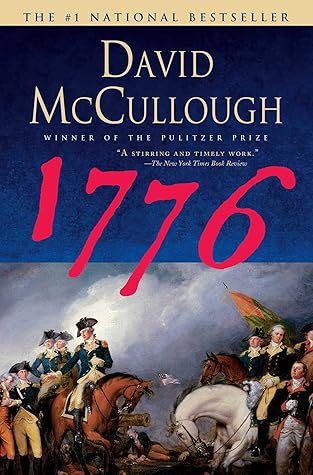More on this book
Community
Kindle Notes & Highlights
Convinced that his army at Boston was insufficient, the King had dispatched reinforcements and three of his best major generals: William Howe, John Burgoyne, and Henry Clinton. Howe, a member of Parliament and a Whig, had earlier told his Nottingham constituents that if it came to war in America and he were offered a command, he would decline. But now duty called. “I was ordered, and could not refuse, without incurring the odious name of backwardness, to serve my country in distress,” he explained.
At a review they demonstrated how, with their long-barreled rifles, a frontier weapon made in Pennsylvania and largely unknown in New England, they could hit a mark seven inches in diameter at a distance of 250 yards, while the ordinary musket was accurate at only 100 yards or so. It was “rifling”—spiraled grooves inside the long barrel—that increased the accuracy, and the new men began firing at British sentries with deadly effect, until the British caught on and kept their heads down or stayed out of range.
Independence was not mentioned. Nor had independence been on the minds of those who fought at Bunker Hill or in Washington’s thoughts when he took command of the army. En route to Cambridge from Philadelphia, he had been quite specific in assuring the New York Provincial Congress that “every exertion of my worthy colleagues and myself will be equally extended to the reestablishment of peace and harmony between the mother country and the colonies.”
IN LATE SEPTEMBER, the discovery that the surgeon general of the army and head of the hospital at Cambridge, Dr. Benjamin Church, was a spy, the first American traitor, rocked everyone.
Howe’s sources of intelligence, furthermore, were pitiful, virtually nonexistent. As near at hand as the rebels were, the British commander knew almost nothing of their true situation, their perilously thin lines, their lack of gunpowder.
Generals Lee and Greene were convinced New York would be of such “vast importance” to the enemy that no time could be lost seeing to its defense. Loyalists were numerous in New York; their support for the Crown was already strong. “If the tide of sentiment gets against us in that province,” Nathanael Greene warned, “it will give a fatal stab to the strength and union of the colonies.” In Greene’s opinion there were but two choices open: defend New York or burn it.
On the matter of Washington’s authority, Adams courageously gave him full, unambiguous approval for taking action in New York or anywhere else, and the issue was never to be raised


